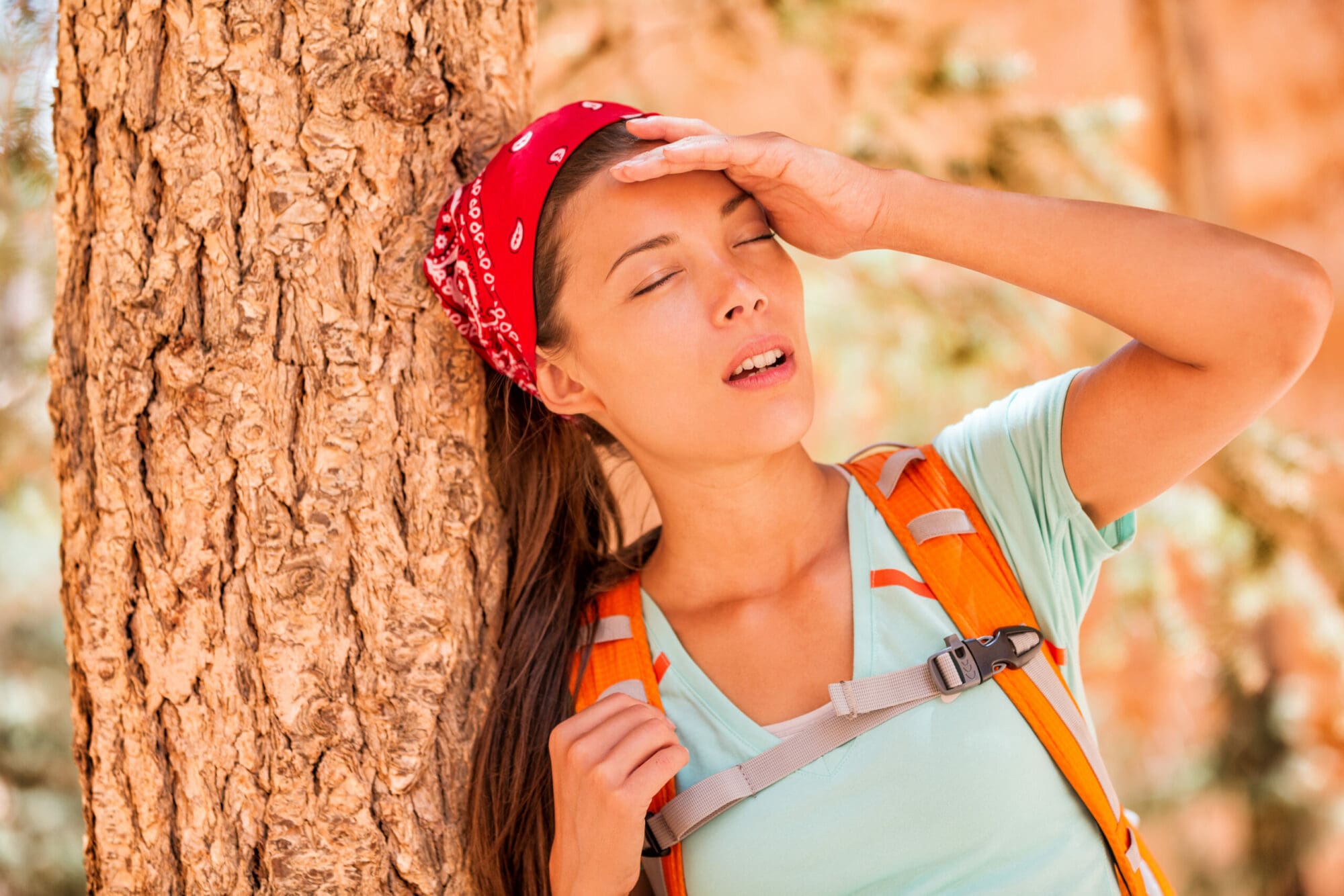The human body contains a high proportion of water, so when the temperature rises and the body tries to cool itself by sweating, dehydration can occur, particularly in children.
What is dehydration?
Dehydration is the loss of water and salts from the body. We need water to maintain our blood volume and blood pressure and to ensure our body functions properly. Along with water, the body also needs electrolytes, which are salts normally found in blood, other fluids, and cells.
Why do we need water?
The human body consists of nearly 60 per cent water; brain tissue is said to consist of about 85 per cent water.
Although fluid loss occurs during hard physical work, even simple tasks like gardening, walking or riding a bike can result in a significant loss of fluid within a very short period. We can also lose a lot of fluid in hot or humid conditions.
Babies and small children feel the effects of heat sooner and more seriously than adults. Children in cars need special protection from heat as cars can heat up very quickly. A parked, locked car can reach dangerously high temperatures very quickly, even if the windows are open slightly. You should never leave a child in a parked car — your child can quickly become overheated and dehydrated, with potentially fatal consequences.
Stages of dehydration
The early stages of dehydration usually have no signs or symptoms, but can include dryness of the mouth and thirst. Other symptoms of early or mild dehydration may include:
- headache;
- dry skin;
- passing less urine than normal;
- tiredness;
- dizziness; and
- cramping in the arms and legs.
As dehydration increases, signs may include:
- extreme thirst and parched mouth and tongue;
- rapid pulse;
- dark, yellow urine;
- little or no urination;
- sunken eyes;
- in infants, a sunken fontanelle (the soft spot on the top of the head);
- skin that has lost its elasticity and doesn’t quickly return to its normal position after being pinched;
- absence of tears when crying;
- irritability or drowsiness; and
- irrational behaviour.
If you are with someone, particularly a child or young person, who suddenly becomes dizzy, nauseated or weak during hot weather, get them indoors or in the shade. Replace lost fluids with water or an electrolyte solution and cool the person down with a tepid shower or sponge bath and by fanning air over their moist skin. Seek medical attention if the symptoms get worse or last for more than an hour.
If someone has dry, red skin, a fast pulse, looks confused or delirious, or feels very hot, that person is in extreme danger and you should seek medical attention immediately, as well as taking the steps outlined above.
During hot and humid weather, you are at higher risk of dehydration and heat-related illnesses, including cramps, heat exhaustion and heat stroke. In severe cases, dehydration and heat stroke can result in shock and even death.
How do I combat dehydration during hot weather?
Water should be given to counteract dehydration in hot or humid weather, regardless of your activity level. Drinking water helps lower your body temperature and replace the fluid you lose through sweating. It should be drunk before you get to the stage of feeling thirsty.
It’s best to remember that other drinks, such as soft drinks, coffee, or alcohol-containing beverages, are no substitute for water. Although they contain water, they also contain ingredients which are dehydrating.
Sports drinks contain carbohydrates and electrolytes and are useful if exercising in hot weather. Oral rehydration solutions such as Gastrolyte and Hydralyte are also suitable. They should be made up and given according to the manufacturer’s instructions. Children should be encouraged to drink water before, during and after exercising, especially if the weather is hot.
So-called ‘energy drinks’ contain caffeine or other stimulants, and are not an appropriate rehydration fluid. If in doubt, water is the preferred option in most cases.
Preventing dehydration during hot weather
It is recommended that during hot weather we should be drinking water even when not thirsty. You can tell if you are well hydrated if you do not feel thirsty and your urine is a dilute (clear) colour.
Other things you can do to avoid dehydration during hot weather include:
- avoiding the sun in the middle of the day — exercise or do outdoor activities early in the morning or evening instead;
- wearing sunscreen and a hat that shades your head, neck, ears and face — sunburn stops your body from cooling itself down properly;
- wearing thin, loose clothing — this allows good airflow, which helps sweat evaporate; and
- avoiding dark clothing, as this absorbs more heat than light clothing.

